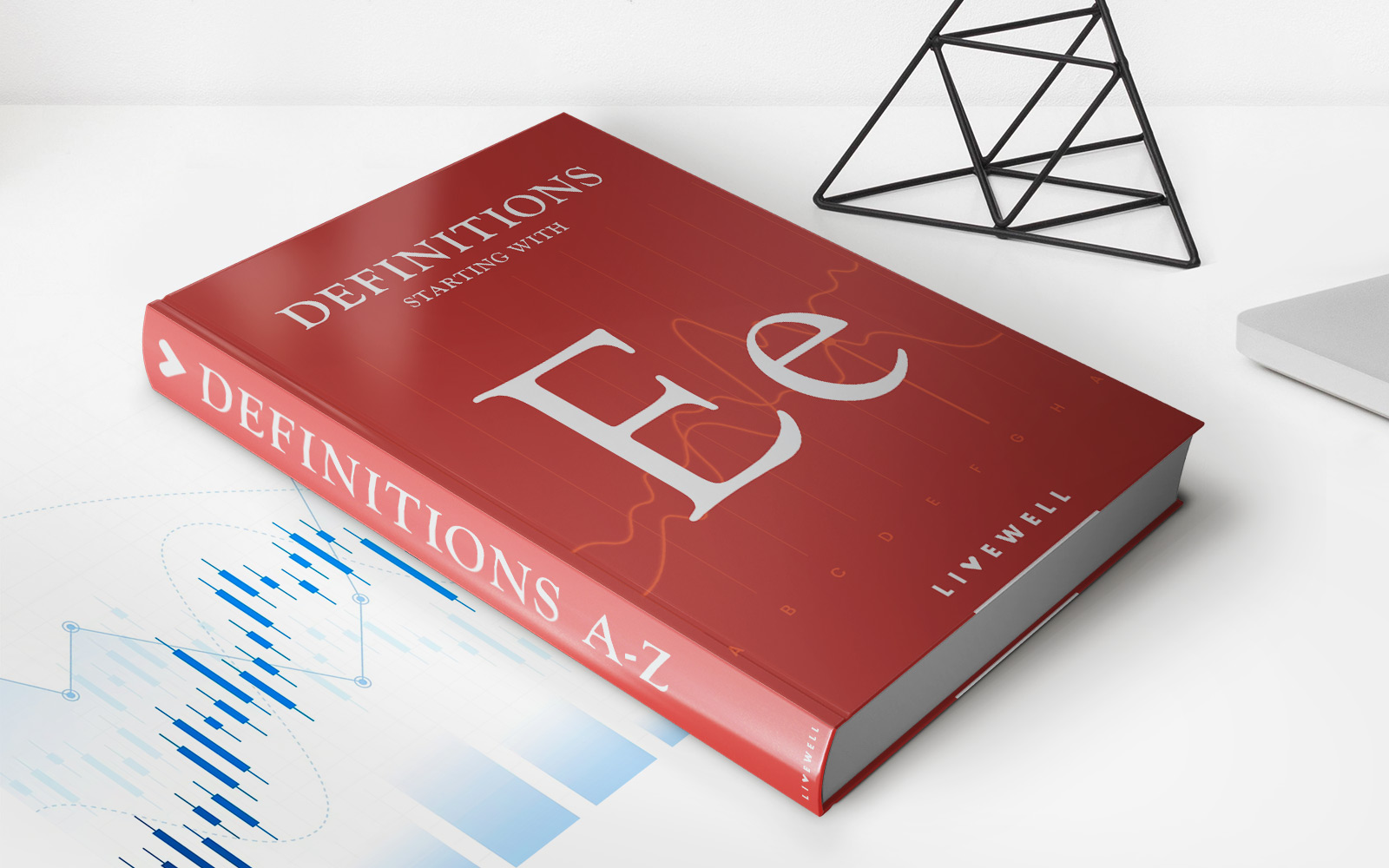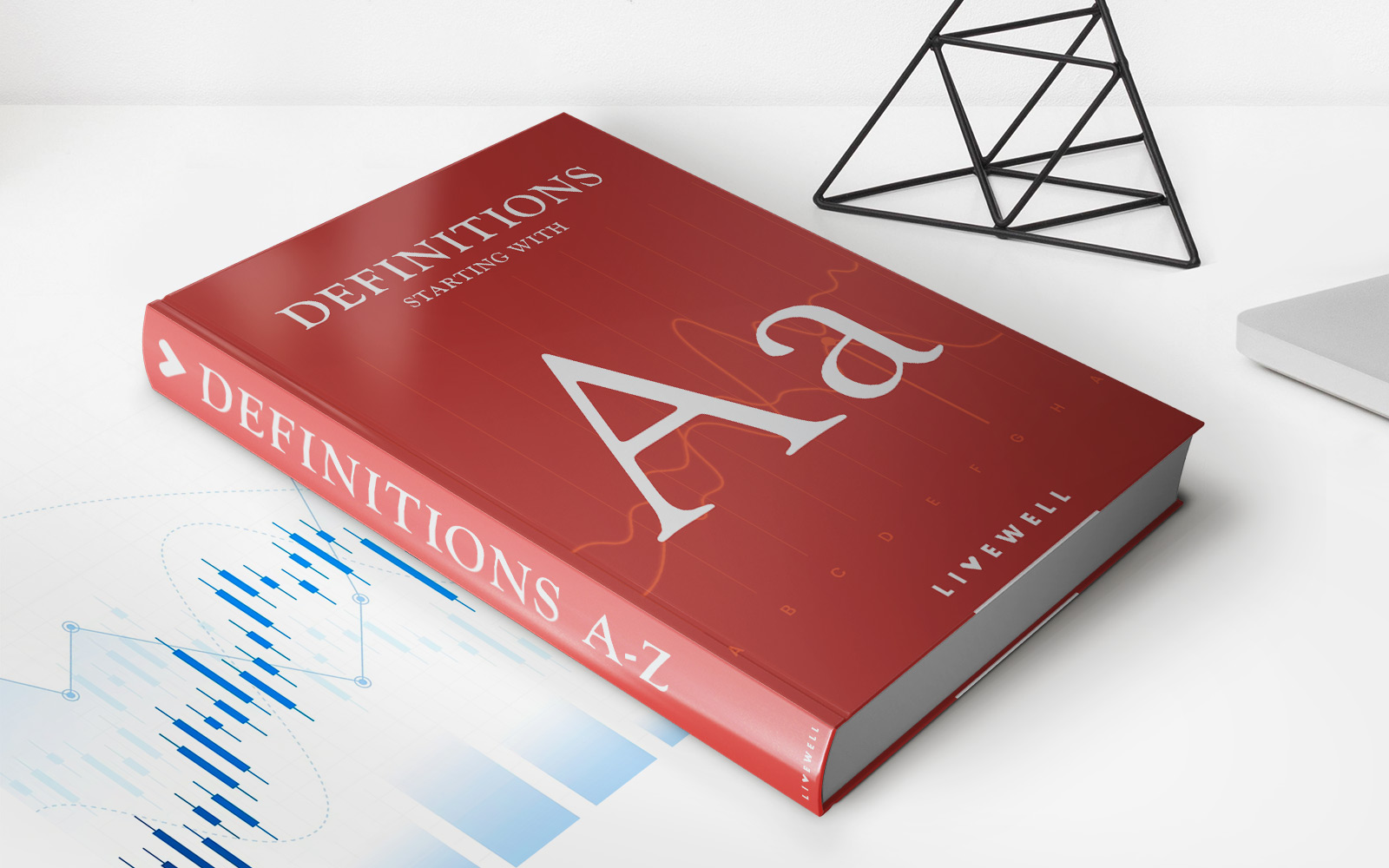

Finance
What Is A Letter Of Experience In Insurance
Published: November 8, 2023
Learn what a letter of experience in insurance is and how it impacts your finances. Understand its role in assessing risk and determining premiums.
(Many of the links in this article redirect to a specific reviewed product. Your purchase of these products through affiliate links helps to generate commission for LiveWell, at no extra cost. Learn more)
Table of Contents
- Introduction
- Definition of a Letter of Experience
- Purpose of a Letter of Experience
- Contents of a Letter of Experience
- Importance of a Letter of Experience in Insurance
- How to Obtain a Letter of Experience
- Factors Influencing the Issuance of a Letter of Experience
- Types of Insurance Policies Requiring a Letter of Experience
- Common Uses of a Letter of Experience
- Differences Between a Letter of Experience and a Loss Run Statement
- Conclusion
Introduction
In the world of insurance, understanding the various documents and paperwork required can often be a daunting task. One such document that plays a crucial role in insurance transactions is the Letter of Experience. This document holds important information that can greatly impact insurance policies and claims.
A Letter of Experience, also known as a Letter of Claims History or a Claims Experience Letter, is a written document provided by an insurance company to a policyholder or an individual seeking insurance. It serves as proof of the policyholder’s insurance history and claims experience.
Insurance companies issue Letters of Experience to provide a summary of the policyholder’s previous insurance coverage, including any claims filed and the outcome of those claims. This information helps insurers assess the risk associated with providing coverage to an individual or business.
The importance of a Letter of Experience cannot be overstated. It acts as a vital piece of documentation that can significantly impact an individual’s ability to obtain insurance coverage at a reasonable premium. Additionally, insurance companies use this document to determine policy terms and conditions, including deductibles, coverage limits, and pricing.
Obtaining a Letter of Experience is a crucial step in the insurance process, and understanding its purpose and contents is essential for policyholders and insurance seekers alike. In this article, we will delve into the definition, purpose, importance, and various aspects related to Letters of Experience in the insurance industry.
Definition of a Letter of Experience
A Letter of Experience, also referred to as a Letter of Claims History or Claims Experience Letter, is an official document issued by an insurance company. It provides a comprehensive summary of an individual’s insurance history, including details about their previous coverage and any claims filed. This document is often required by insurance providers when determining the eligibility and pricing of a new insurance policy.
The Letter of Experience serves as a proof of an individual’s or business’s insurance history and claims experience. It outlines the duration of the policy, the types of coverage held, and details about any claims made during that time. The document typically includes information such as the policyholder’s name, policy numbers, effective dates of coverage, and the name of the insurance company issuing the letter.
The purpose of a Letter of Experience is to provide insight into an individual’s insurance track record, including the frequency of claims and the outcome of those claims. This information helps insurance companies assess the risk associated with providing coverage to the policyholder. It also assists in determining policy terms, such as deductibles, coverage limits, and pricing.
Insurance companies have specific guidelines and criteria for issuing Letters of Experience. These guidelines vary among insurers, but generally require a minimum period of insurance history and claim-free periods. Some insurance companies may also require specific forms or formats for the letter. It is important to check with the insurance provider to understand their requirements and ensure the letter is issued correctly.
In summary, a Letter of Experience is a documented summary of an individual or business’s insurance history and claims experience. It serves as proof of insurance coverage and claims made during a specific period, helping insurance companies assess risk and determine policy terms and pricing.
Purpose of a Letter of Experience
The primary purpose of a Letter of Experience is to provide insurance companies with a documented history of an individual’s or business’s insurance coverage and claims experience. This document allows insurance providers to assess the risk associated with providing coverage to the policyholder and make informed decisions regarding policy terms and pricing.
Here are some specific purposes of a Letter of Experience:
- Evaluation of Risk: Insurance companies use Letters of Experience to evaluate the risk associated with providing coverage to a policyholder. By reviewing the claims history and loss experience, insurers can assess the likelihood of future claims and adjust policy terms accordingly.
- Underwriting Decisions: When an individual applies for a new insurance policy or seeks to renew an existing policy, the insurance company considers factors such as claims history, previous coverage, and claims outcome. A Letter of Experience provides crucial information for underwriting decisions, including determining policy terms, coverage limits, and deductibles.
- Pricing Considerations: The premium for insurance coverage is based on the level of risk associated with the policyholder. A Letter of Experience helps insurers accurately assess the risk and calculate the premium accordingly. Individuals with a history of frequent and high-value claims may be considered higher risk and may face higher premium rates.
- Accurate Coverage Determination: The Letter of Experience helps insurance companies determine the appropriate coverage and limits for the policyholder. It ensures that the policy provides adequate protection based on the individual’s specific needs and previous claims experience.
- Verification of Insurance History: Insurance industry regulations require individuals to provide accurate and complete information regarding their insurance history. A Letter of Experience serves as a verification document that can be used to confirm the accuracy of the information provided by the policyholder during the application process.
Overall, the purpose of a Letter of Experience is to assist insurance companies in making informed decisions about providing coverage to policyholders. It helps them evaluate risk, determine policy terms, and accurately price insurance coverage based on an individual’s or business’s insurance history and claims experience.
Contents of a Letter of Experience
A Letter of Experience contains important information that insurance companies use to assess the risk and determine policy terms for policyholders. The specific contents may vary between insurers, but the following are common elements found in a typical Letter of Experience:
- Policyholder Information: The letter begins with details about the policyholder, including their name, address, contact information, and insurance policy number(s). This information helps identify the individual or business associated with the insurance history being summarized.
- Effective Dates of Coverage: The Letter of Experience includes the specific dates when the policyholder’s insurance coverage was in effect. This helps insurance companies understand the duration of the policy and the corresponding claims history.
- Claims History: Perhaps the most crucial aspect of the Letter of Experience is the summary of the policyholder’s claims history. It includes details such as the date of each claim, a description of the incident or loss, and the outcome of the claim (e.g., paid, settled, denied). Insurance companies analyze this information to evaluate the frequency and severity of claims.
- Claim Amounts: The document may also include the monetary value of each claim filed by the policyholder. Insurance companies use this information to assess the financial impact of past claims and determine the risk associated with providing coverage.
- Coverage Details: The Letter of Experience typically outlines the types of coverage the policyholder had during the specified period. It may include details about liability coverage, property coverage, or specific endorsements and riders added to the policy.
- Limits and Deductibles: The document may mention the coverage limits and deductibles associated with the policy. Insurance companies use this information to assess the level of risk and calculate premiums accordingly.
- Additional Information: Depending on the insurer, the letter may include any relevant additional information, such as claims made against different types of insurance (auto, home, business, etc.) or any significant claims settlements or judgments.
It’s important to note that the content and format of a Letter of Experience may vary depending on the insurance company. Some insurers may include more detailed information, while others may provide a more concise summary. Always ensure that the letter includes all relevant information required by the insurance provider and accurately represents the policyholder’s insurance history and claims experience.
Importance of a Letter of Experience in Insurance
A Letter of Experience plays a crucial role in the insurance industry. It serves as an essential document that holds significant importance for both insurance companies and policyholders. Here are some key reasons why a Letter of Experience is important in insurance:
- Evaluating Risk: Insurance companies use a Letter of Experience to assess the risk associated with providing coverage to a policyholder. By reviewing the claims history and loss experience, insurers can determine the likelihood of future claims. This helps them make informed decisions regarding policy terms, coverage limits, and deductibles.
- Pricing and Premiums: The information provided in a Letter of Experience directly affects the pricing of insurance premiums. Insurance companies analyze the claims history and loss experience to calculate the premium rates. Individuals with a favorable claims history may receive lower premiums, while those with frequent or high-value claims may face higher premium rates due to the perceived higher risk.
- Underwriting Decisions: A Letter of Experience helps insurance companies make underwriting decisions. It provides crucial information about the policyholder’s claims history, coverage status, and claims outcome. This information helps insurers determine the level of risk associated with providing coverage to the individual or business.
- Policy Terms and Conditions: The details in a Letter of Experience are used to set policy terms and conditions. It helps insurance companies determine the coverage limits, deductibles, and specific terms tailored to the policyholder’s risk profile. This ensures that the policy provides the appropriate coverage and protections based on the individual’s or business’s insurance history.
- Verification of Insurance History: Insurance regulations require individuals to provide accurate and complete information about their insurance history. A Letter of Experience serves as a verification document that confirms the accuracy of the information provided by the policyholder during the application process. It helps prevent fraudulent claims, maintain integrity within the insurance industry, and ensures transparency in policy transactions.
Overall, the importance of a Letter of Experience in insurance cannot be overstated. It acts as a crucial tool for insurance companies to evaluate risk, determine policy terms, and calculate premiums. For policyholders, it serves as proof of their insurance history and claims experience, influencing their ability to obtain coverage at reasonable rates. Therefore, it is essential for policyholders to maintain a favorable claims history and ensure the accuracy of the information reflected in their Letter of Experience.
How to Obtain a Letter of Experience
Obtaining a Letter of Experience is a relatively straightforward process. Policyholders can request this important document from their insurance company or agent. Here are the general steps to follow when seeking a Letter of Experience:
- Contact your Insurance Company or Agent: Begin by reaching out to your insurance company or the insurance agent who handles your policy. This can be done via phone, email, or through an online customer portal, depending on the communication options available.
- Provide Relevant Information: When requesting a Letter of Experience, be prepared to provide the necessary information to help them identify your policy details. This typically includes your name, policy number(s), and any other relevant information requested by the insurer.
- Request the Letter of Experience: Clearly communicate the purpose of your request and specifically ask for a Letter of Experience. Be sure to specify the period for which you need the claims history summarized, such as the past five years or since the start of the policy.
- Follow Instructions: The insurance company or agent may have specific procedures in place for requesting and receiving the Letter of Experience. Follow their instructions and provide any additional documentation or forms as requested.
- Review the Letter: Once you receive the Letter of Experience, carefully review its contents to ensure accuracy. Check that the policyholder information, effective dates of coverage, and claims history details are correct. If you notice any discrepancies or missing information, contact the insurance company or agent to address and rectify the issue.
- Keep a Copy: Make sure to keep a copy of the Letter of Experience for your records. It serves as a proof of your insurance history and claims experience and may be required for future insurance applications or claims.
It’s important to note that different insurance companies may have varying processes and timelines for issuing Letters of Experience. Some insurers may provide the document instantly through their online platforms, while others may require a formal request and take a few days to process it. Contacting your insurance company or agent early in the process will help ensure timely delivery of the Letter of Experience.
Remember, accuracy and completeness of the information provided is crucial. Make sure to provide all required details and confirm that the Letter of Experience accurately reflects your insurance history to avoid any future discrepancies or complications.
Factors Influencing the Issuance of a Letter of Experience
The issuance of a Letter of Experience is subject to various factors that insurance companies consider before providing the document to the policyholder. Understanding these factors can help individuals prepare and ensure a smooth process when requesting a Letter of Experience. Here are some key factors that influence the issuance of a Letter of Experience:
- Policy Duration: Insurance companies typically require a minimum period of insurance history before issuing a Letter of Experience. The exact duration may vary between insurers, but it is common to see a requirement of at least one year of continuous coverage.
- Claim-Free Period: Insurance companies often look for a claim-free period during the policy term. The length of this period varies between insurers and may range from six months to several years. A longer claim-free period usually increases the likelihood of obtaining a favorable Letter of Experience.
- Claims History: Insurance companies consider the number and severity of claims filed by the policyholder. A history of frequent or large claims may raise concerns for insurers, potentially impacting the issuance of a Letter of Experience and even influencing future insurance coverage.
- Claims Outcome: In addition to the number and severity of claims, insurers also assess the outcome of the claims filed. If the claims were successfully resolved or settled, it may positively impact the issuance of a Letter of Experience. However, if there were denials or disputes, it may raise concerns for insurers.
- Policy in Good Standing: Insurance companies typically require the policyholder’s account to be in good standing before providing a Letter of Experience. This means that the policyholder should have paid all premiums on time and fulfilled all obligations under the policy, such as providing accurate information and complying with policy terms.
- Policy Type and Coverage: The type of insurance policy and the coverage provided may also influence the issuance of a Letter of Experience. Some types of policies, such as commercial general liability insurance or professional liability insurance, may require more extensive claims history documentation compared to personal auto or homeowner’s insurance.
- Insurance Company Policies: Each insurance company has its own policies and procedures for issuing Letters of Experience. It is important to familiarize yourself with these policies and abide by any specific requirements or formats requested by the insurer.
It’s important to note that these factors may not be the same for all insurance companies. Each insurer may have their own set of criteria and considerations when issuing a Letter of Experience. Therefore, it is advisable to consult with your insurance company or agent to understand their specific requirements and expectations when requesting this document.
By understanding the factors that influence the issuance of a Letter of Experience, individuals can proactively manage their claims history, maintain a good standing with their insurance company, and ensure a smooth process when requesting this important document.
Types of Insurance Policies Requiring a Letter of Experience
A Letter of Experience is commonly required for various types of insurance policies. Insurance companies often request this document to assess the risk associated with providing coverage and to determine policy terms and conditions. Here are some types of insurance policies that frequently require a Letter of Experience:
- Auto Insurance: When applying for auto insurance coverage, insurance companies typically request a Letter of Experience to understand the policyholder’s driving history, claims made, and any previous insurance coverage. This helps insurers evaluate the risk associated with providing auto insurance coverage and may influence policy premiums.
- Homeowners Insurance: Homeowners seeking new coverage or policy renewals may be required to provide a Letter of Experience. This helps insurance companies assess the claims history related to the property, including previous losses or damages, and determine the appropriate coverage and pricing.
- Business Insurance: Comprehensive business insurance policies, such as general liability insurance, professional liability insurance, or commercial property insurance, generally require a Letter of Experience. This allows insurers to understand the risk associated with providing coverage to the business and helps determine policy terms and pricing.
- Professional Liability Insurance: Professionals in various fields, such as doctors, lawyers, accountants, or architects, often require professional liability insurance. Insurance companies may request a Letter of Experience to assess the claims history and severity of any professional liability claims filed against the policyholder.
- Contractor’s Insurance: Contractors and construction professionals typically need contractor’s insurance. Insurance companies may ask for a Letter of Experience to evaluate the policyholder’s claims history, particularly in relation to construction-related claims or damages.
- Malpractice Insurance: Professionals in the medical, legal, or other professional fields may require malpractice insurance. Insurance companies may request a Letter of Experience to examine the claims history and outcomes related to malpractice claims filed against the policyholder.
- Commercial Vehicle Insurance: Companies with a fleet of vehicles or those using vehicles for business purposes often require commercial vehicle insurance. Insurance companies may ask for a Letter of Experience to understand the claims history and driving records of the drivers associated with the policy.
It’s important to note that the specific requirements for a Letter of Experience may vary depending on the insurance company and the policy being applied for or renewed. Always consult with your insurance company or agent to understand their specific requirements and expectations for obtaining a Letter of Experience for your particular insurance policy.
By familiarizing yourself with the types of insurance policies that commonly require a Letter of Experience, you can anticipate the need for this document and ensure a smooth process when applying for or renewing your insurance coverage.
Common Uses of a Letter of Experience
A Letter of Experience serves various purposes within the insurance industry and has several common uses. Insurance companies and policyholders rely on this document for different reasons. Here are some of the most common uses of a Letter of Experience:
- Insurance Applications: When applying for a new insurance policy, insurance companies often require a Letter of Experience as part of the application process. It provides the insurer with a summary of the policyholder’s insurance history, claims experience, and helps them assess the risk associated with providing coverage. The letter helps streamline the underwriting process and supports the evaluation of policy terms and premiums.
- Policy Renewals: For policy renewals, insurance companies may request a Letter of Experience to assess any changes in the policyholder’s claims history or coverage since the initial issuance of the policy. This information helps insurers determine the continued eligibility for coverage, evaluate the risk, and adjust policy terms, conditions, or premiums as necessary.
- Policy Transfers: When policyholders switch insurance providers or transfer coverage from one insurer to another, a Letter of Experience may be required by the new insurance company. The document helps the new insurer understand the policyholder’s claims history and previous coverage, facilitating the transfer of the policy and ensuring accurate pricing and policy terms.
- Proof of Insurance History: A Letter of Experience serves as proof of the policyholder’s insurance history and claims experience. It can be used to validate the length of continuous coverage, provide evidence of policy limits and deductibles, and verify previous claims. This documentation is often requested by other institutions, such as lenders, landlords, or regulatory authorities, to verify insurance coverage and claims history.
- Claims Management: Insurance companies use a Letter of Experience as a reference point to assess the validity of new claims. It helps insurers evaluate the frequency and severity of previous claims made by the policyholder. The document also assists in determining whether a specific claim falls within the policy coverage and if any prior incidents or losses may impact the current claim settlement process.
- Insurance Audits: Insurance audits may require a Letter of Experience to validate the accuracy of the policyholder’s claims history and coverage details. During an audit, insurance companies review the policyholder’s records, including claims made during a specific period, to ensure compliance with policy terms and adjust premiums if necessary.
It is important to understand the common uses of a Letter of Experience in order to prepare and provide this document when required. Whether applying for new insurance, renewing a policy, or transferring coverage, having a Letter of Experience readily available can expedite the insurance process and ensure accurate evaluation of risk, coverage, and premium rates.
Differences Between a Letter of Experience and a Loss Run Statement
While both a Letter of Experience and a Loss Run Statement provide information about an individual’s or business’s insurance history and claims experience, there are distinct differences between the two documents. Understanding these differences is important for policyholders and insurance professionals. Here are the key distinctions between a Letter of Experience and a Loss Run Statement:
1. Purpose:
– Letter of Experience: The primary purpose of a Letter of Experience is to provide a summarized overview of an individual’s or business’s insurance history and claims experience. It is used to assess risk, determine policy terms, evaluate eligibility for coverage, and calculate premiums.
– Loss Run Statement: A Loss Run Statement, on the other hand, focuses specifically on providing detailed information about the claims filed by the policyholder. It includes specific claim details such as date of loss, type of loss, amounts paid, outstanding reserves, and the status of the claim. Loss Run Statements are typically used for monitoring and analyzing the claims experience of an individual or business.
2. Format and Content:
– Letter of Experience: A Letter of Experience is typically a concise and summarized document. It highlights the policyholder’s insurance history, including effective dates of coverage, types of coverage held, and a general overview of any claims made during that period. The document may include claim outcomes but does not provide detailed information about individual claims.
– Loss Run Statement: In contrast, a Loss Run Statement provides comprehensive and detailed information about individual claims. It includes specific claim details, such as the date of each claim, description of the incident, amounts paid, outstanding reserves, and the current status of the claim. The Loss Run Statement offers a more granular view of the policyholder’s claims history and is often requested for more in-depth analysis or review purposes.
3. Usage:
– Letter of Experience: A Letter of Experience is commonly used for insurance applications, policy renewals, policy transfers, and to provide proof of insurance history. It allows insurers to assess risk and determine premium rates and policy terms. It is also used as a reference point for claims management and auditing purposes.
– Loss Run Statement: A Loss Run Statement is primarily used by insurance professionals, risk managers, or underwriters to analyze and evaluate a policyholder’s claims experience. It helps in assessing the frequency and severity of claims, identifying patterns or trends, and determining the impact on future risk exposure. Loss Run Statements are typically requested for insurance audits, risk evaluation, or policy assessments.
While a Letter of Experience provides a high-level summary of the policyholder’s insurance history and claims experience, a Loss Run Statement offers a more detailed and comprehensive view of individual claims. Both documents serve important purposes within the insurance industry and contribute to the evaluation and decision-making processes for insurance companies and policyholders.
Conclusion
A Letter of Experience is a vital document in the insurance industry, providing a summarized overview of an individual’s or business’s insurance history and claims experience. This document plays a crucial role in policy applications, renewals, and transfers, allowing insurance companies to evaluate risk, determine policy terms, and calculate premiums.
Understanding the contents of a Letter of Experience, which typically include policyholder information, effective dates of coverage, claims history, claim amounts, coverage details, and limits, is essential for both policyholders and insurance providers.
A Letter of Experience is usually required for various insurance policies, such as auto, homeowners, business, professional liability, contractor’s insurance, malpractice insurance, and commercial vehicle insurance. It serves as proof of insurance history, aids in underwriting decisions, and helps verify the accuracy of the policyholder’s claims history.
While similar in nature, a Letter of Experience differs from a Loss Run Statement. The former provides a summarized overview of insurance history and claims experience, while the latter offers a more detailed account of individual claims, including dates, types of loss, amounts paid, outstanding reserves, and claim status.
To obtain a Letter of Experience, policyholders should contact their insurance company or agent, provide necessary information, and follow any specific instructions given. Keeping a copy of the document is important for future reference, as it may be required by other institutions or during insurance audits.
In conclusion, understanding the importance, uses, and differences of a Letter of Experience and a Loss Run Statement allows policyholders to navigate the insurance process smoothly and insurance companies to assess risk accurately. This document is a valuable tool that helps ensure transparency, evaluate risk, and provide appropriate coverage in the insurance industry.














